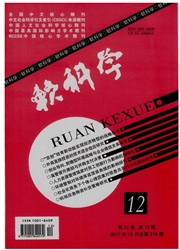

 中文摘要:
中文摘要:
考虑市场需求为随机的两级供应链,以零售商是风险中性及公平中性决策者时的博弈结果为参照,研究零售商风险规避和公平关切对供应链运作的影响,并对由一个风险中性及公平中性的制造商和一个风险规避及公平关切的零售商组成的供应链提出了协调机制。研究结果表明,零售商风险规避和公平关切改变了批发价格和零售价格的定价策略,影响了零售商、制造商以及供应链整体的期望利润大小;对于一个风险中性及公平中性的制造商和一个损失规避及公平关切的零售商组成的供应链,可以设计恰当的收益共享契约来实现供应链的协调和优化。
 英文摘要:
英文摘要:
Considering the market demand as a random two-level supply chain and game results while the retailer is risk neutral and fairness neutral as a reference. This paper studies how the preferences of risk-aversion and fairness concerns will influence the balancing strategy of the supply chain and comes up with optimization and coordination strategies for a retailer who not only is risk averse but also has fairness concerns. The results show that the retailer' s risk-aversion and fairness concerns would change the pricing strategy of wholesale and retail, and the expected profit of manufacturer, retailer and the entire supply chain are also influenced. For the supply chain with a manufacturer who is risk neutral and fairness neutral and a retailer who is risk averse and has fairness concerns, certain profit-sharing contracts can be designed to achieve profit Pareto improvement for both of them.
 同期刊论文项目
同期刊论文项目
 同项目期刊论文
同项目期刊论文
 期刊信息
期刊信息
